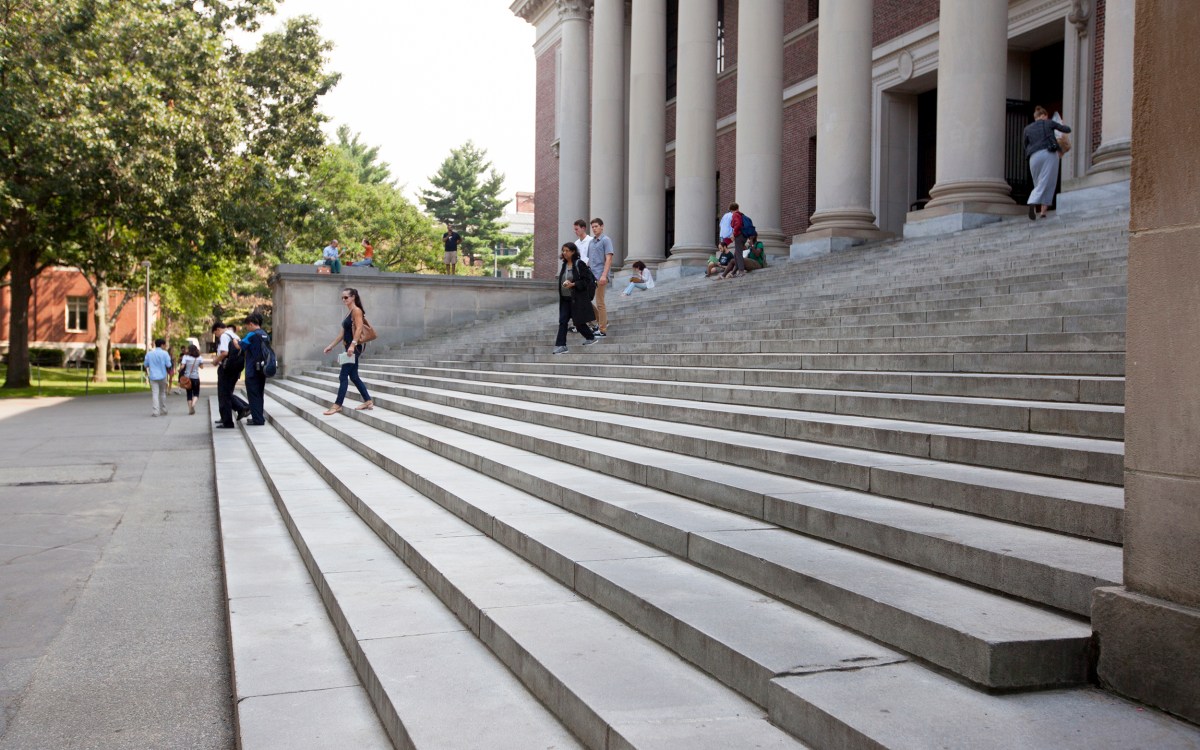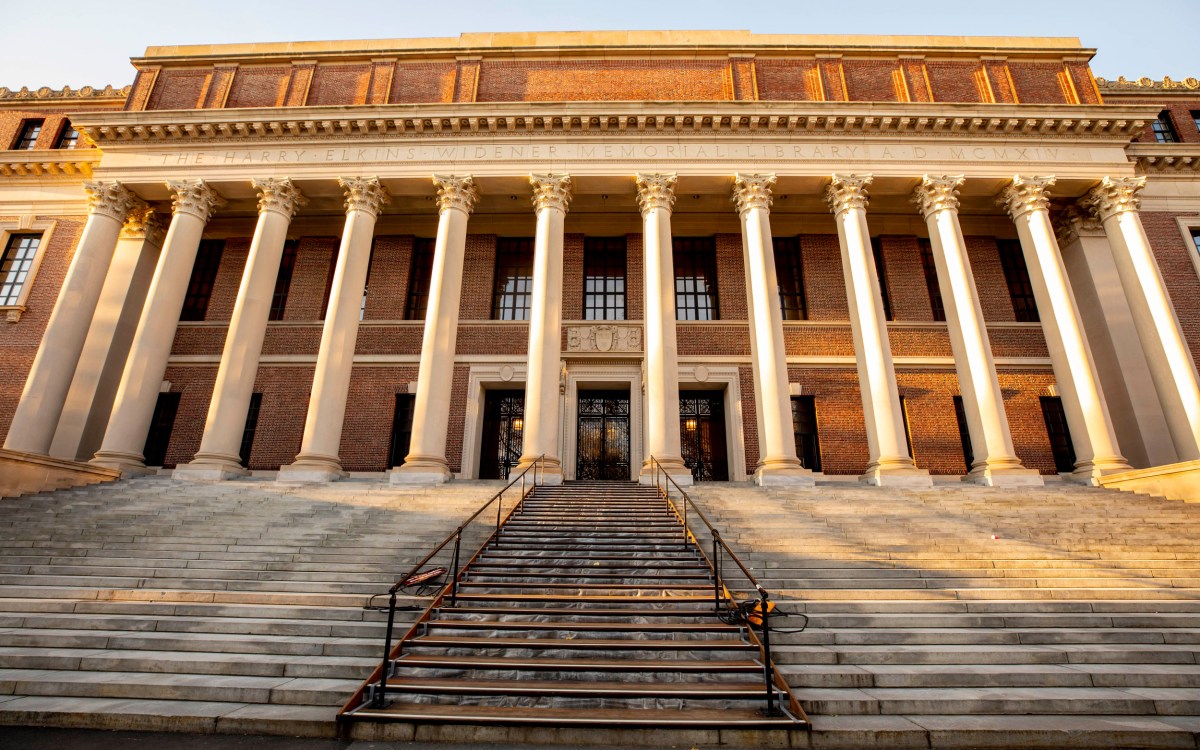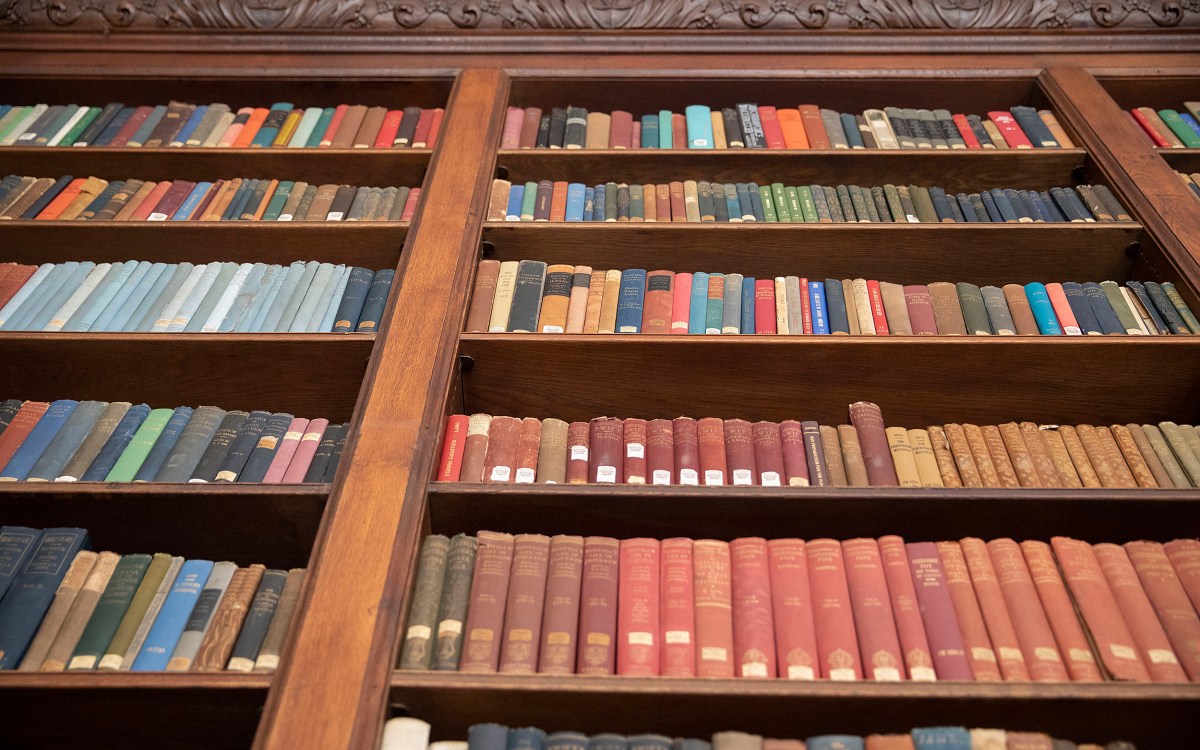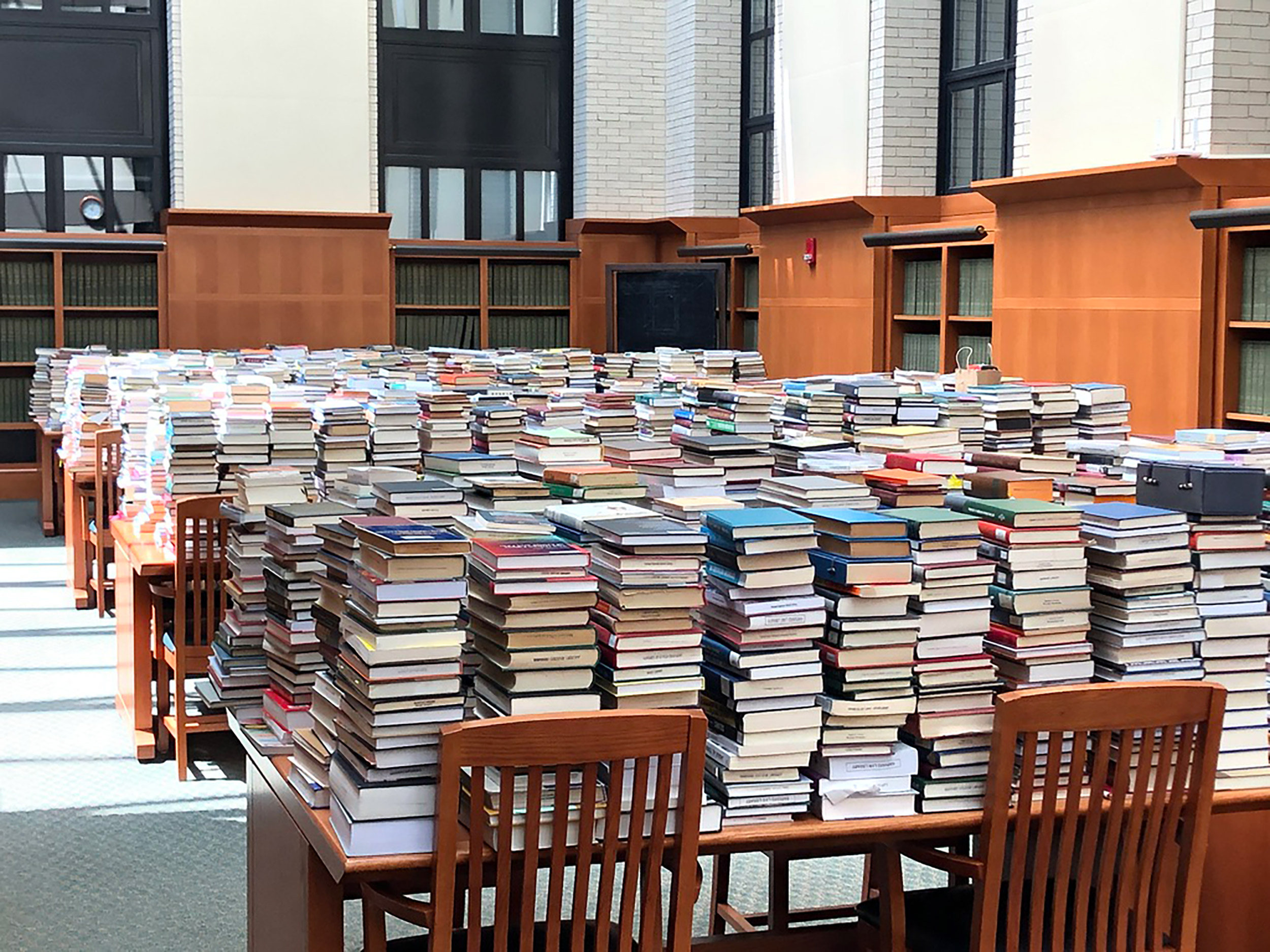
Returns were temporarily stored in the West Stacks Reading Room in Widener Library as they awaited processing by library staff.
Photo courtesy of Vaughn Waters
It’s back to the stacks
100 library staff members return to campus as access to physical collection resumes
When Harvard Library Access Services Director Amy Boucher returned to the Yard at the end of June, she entered a different Widener Library than the one she’d left in mid-March. Re-shelving carts filled the Circulation Room; thousands of book returns waiting to be processed topped tables in the Phillips Reading Room. Masked colleagues and social-distancing signage were reminders of the pandemic and the importance of new safety protocols.
At the same time, Boucher said, it’s been nice to be back.
“I didn’t realize how much I missed the library until I was back on site,” she said. And as her team began greeting masked patrons picking up materials in the Lamont lobby, it became clear that library users were glad to see them back as well.
Boucher and more than 100 other staff members returned to library buildings two weeks ago as Harvard began its phased reopening of on-campus services, allowing access to physical materials that have not been circulating for more than three months.
Books and other physical collections are once again available for Harvard staff, students, and faculty to borrow, through appointment-only front door pickup at Lamont Library. Through HOLLIS, Library users can request items held in Lamont Library, Widener Library, or Harvard Depository. Users are notified once their request is fulfilled and sent a link to schedule a pickup.
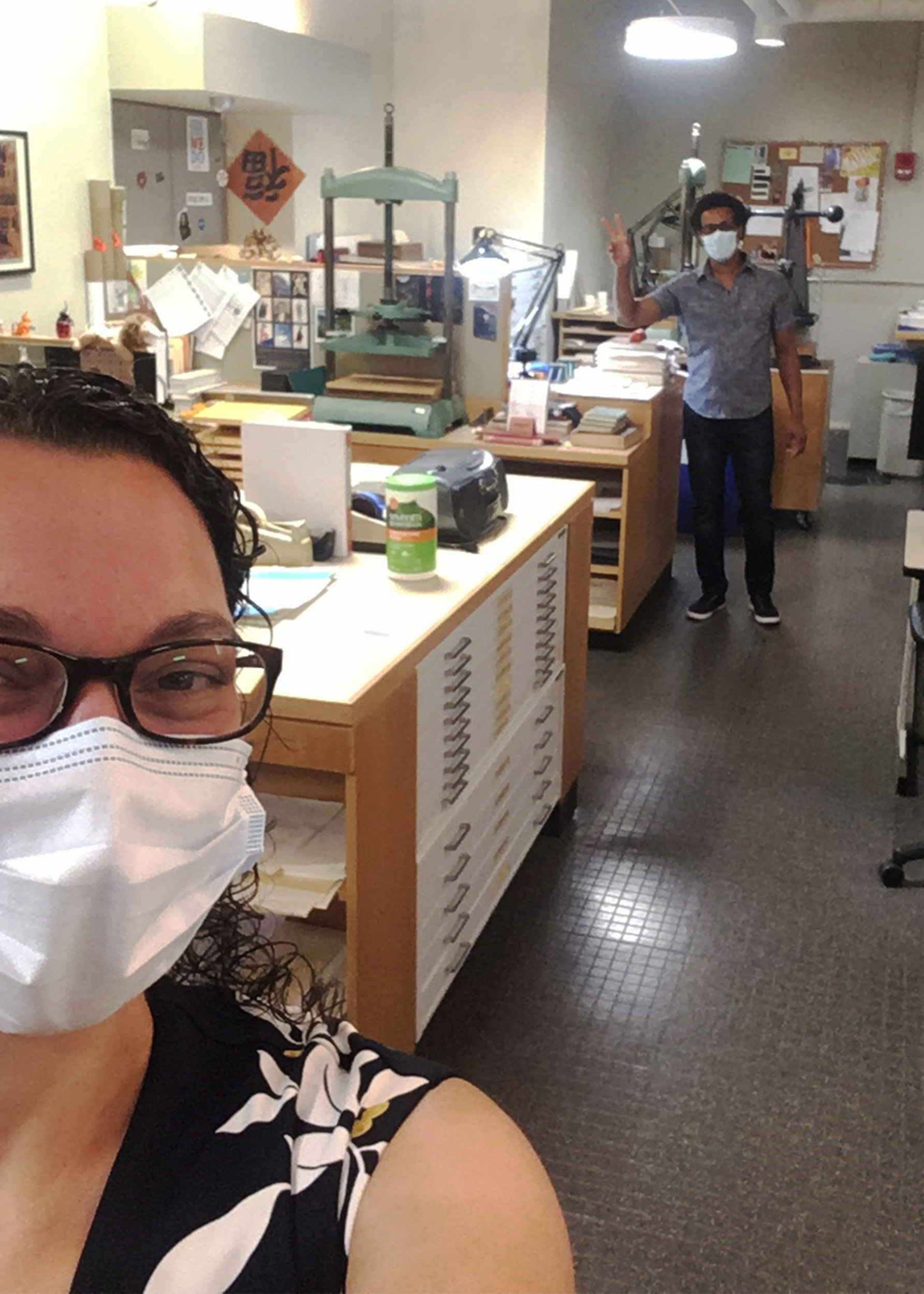
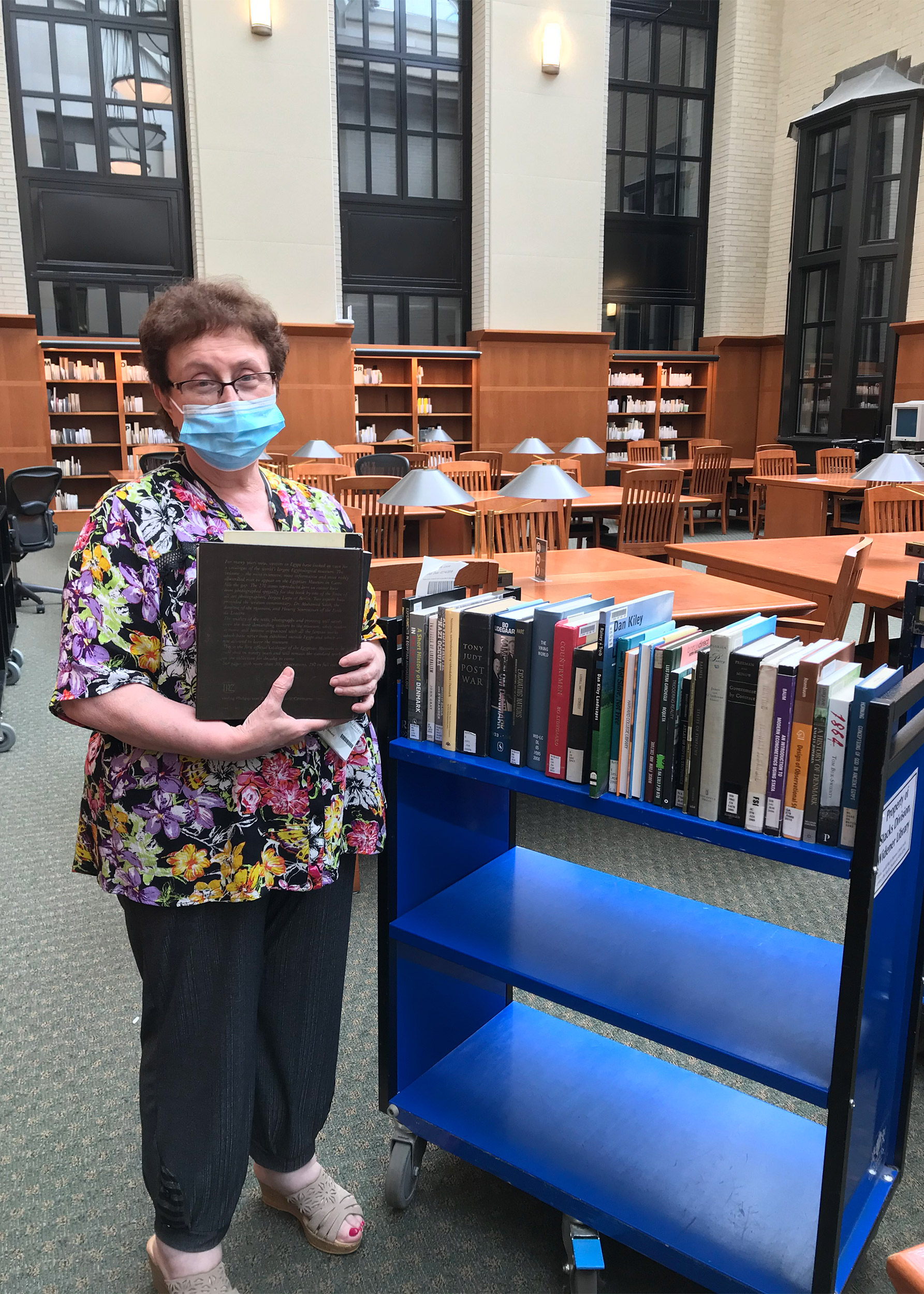
Nora Dempsey (foreground) at a safe distance from her Preservation Services colleague Humberto Oliveira in Widener Library working on collections care. Eugenia Dimant, who belongs to one of the Widener teams processing the backlog of book returns, stands in front of tables previously covered by books in the Phillips Reading Room.
Photos courtesy of Nora Dempsey and Denise O’Malley
The pickup service launched on June 30. By July 9, Access Services staff had fulfilled 160 pickup requests — a manageable number for their first seven days in operation, Boucher said.
Most due dates for borrowed items have been extended; however, users can now return books in person at the Massachusetts Avenue entrance of Widener Library. Staff have processed more than 15,000 returns since June 26.
Harvard Library has also resumed services that provide digital access to printed materials. These include the Scan & Deliver service, through which HOLLIS users can request materials to be scanned and emailed to them, and the Course Reserves service, which lets faculty request materials to be scanned and held in digital reserves for students in a course they’re teaching. Scanned material requests are currently limited to items held in Harvard Depository and Widener, Lamont, and Countway libraries.
Library staff received 343 requests for materials through Scan & Deliver within a week of relaunching the service. Course Reserve requests were modest in comparison, but Boucher said she anticipates more in the coming weeks as faculty prepare for the fall semester. Within FAS, requests made before Aug. 1 will receive priority.
This first phase of Harvard Library’s restart plan is intended to meet many users’ needs while still prioritizing the health of staff and the Harvard community. When new safety protocols and socially-distant workflows are running smoothly, the library will move into the second phase of its plan, expanding circulation materials to include general collections and making them available through Scan & Deliver. A third phase will provide user access to physical libraries in some capacity.
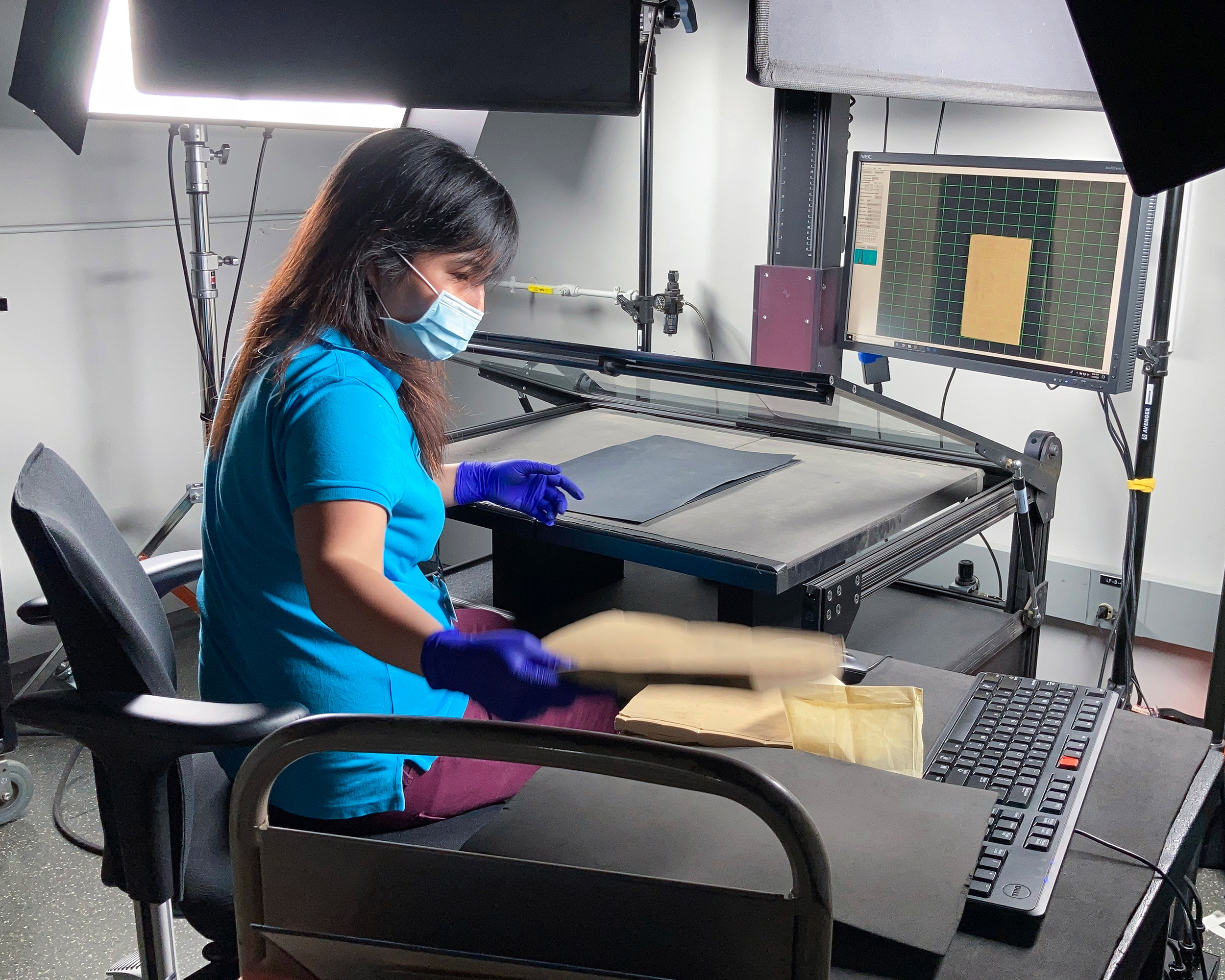
Penny Xu is back at work in the Imaging Services department, currently working on digitizing rare books from the Harvard-Yenching Library.
Photo courtesy of Bill Comstock
The restart plan was developed in coordination with Harvard research labs, which reopened earlier in June. It takes into consideration health guidelines on University, local, state, and national levels, and the latest available research on the interactions of library materials and COVID-19.
Restarting access to physical collections was a “significant milestone,” according to University Librarian and Vice President for Harvard Library Martha Whitehead.
“A multitude of people have come together in a spirit of collaboration to move us forward,” Whitehead said. “It’s wonderful to see the extraordinary care and creativity going into delivering our services remotely and restarting our services on campus.”
Many library services have remained available throughout the pandemic, including remote research consultations; Ask a Librarian live chats; millions of books, journals, and items digitized from print collections; and research on COVID-19 in Dataverse and DASH.
Members of the Harvard community seeking regular updates on available library services can visit the Library’s restart service webpage and join the Harvard Library Restart Updates email list.



